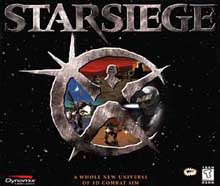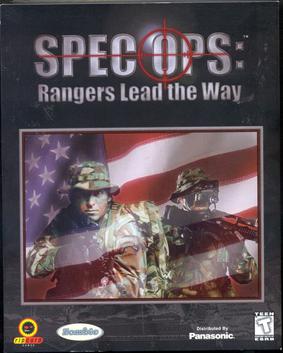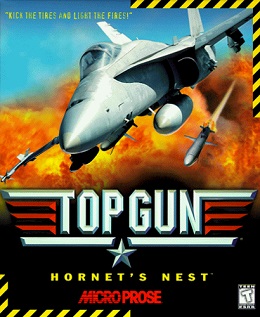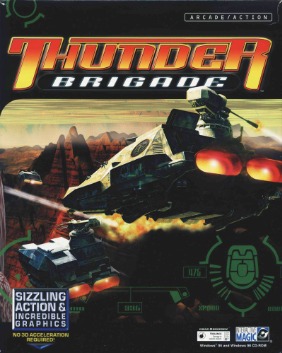
Grand Prix Legends is a computer racing simulator developed by Papyrus Design Group and published in 1998 by Sierra On-Line under the Sierra Sports banner. It is inspired by the 1967 Grand Prix season; teams included are Brabham, BRM, Eagle, Ferrari and Lotus. Two fictional teams called "Murasama" and "Coventry" replaced the other big names. The Japanese team possibly because of copyright claims. Whilst it is rumoured the other fictional team was included due to a misunderstanding.

Age of Wonders is a 1999 turn-based strategy game co-developed by Triumph Studios and Epic MegaGames, and published by Gathering of Developers.

Starsiege: Tribes is a first-person shooter video game. It is the first of the Tribes video game series and follows the story from Metaltech: Earthsiege and Starsiege. It was developed by Dynamix and published by Sierra On-Line in 1998. An expansion pack, Tribes Extreme, was cancelled; it was supposed to add single-player missions, multiplayer maps, and bot AI.

Kingpin: Life of Crime is a first-person shooter developed by Xatrix Entertainment and published by Interplay Entertainment in June 1999. The game begins with the player character wounded and beaten up by associates of the crime boss The Kingpin, and the story follows his thirst for revenge. Released shortly after the Columbine High School massacre, the game attracted controversy due to the overall timing of its release; thus, it was not sold by various retailers in the US, despite receiving generally positive reviews from critics. The game was also ported to Linux.

Dungeon Keeper 2 is a strategy game developed by Bullfrog Productions and published by Electronic Arts in 1999 for Microsoft Windows. In the sequel to Dungeon Keeper, the player takes the role of a 'dungeon keeper', building and defending an underground dungeon from the would-be heroes that would invade it, as well as from other keepers. In the campaign mode, the player is charged with recovering the portal gems from each area in order to open a portal to the surface. The player can also construct a dungeon without strict objectives, and multiplayer is supported over a network.

Starsiege is a mecha-style vehicle simulation game developed by Dynamix and released in 1999. Starsiege is set in the Metaltech/Earthsiege universe, which contains its predecessors Earthsiege (1994), Battledrome (1994), and Earthsiege 2 (1996). This universe also includes action game Hunter Hunted (1996), strategy games Mission Force: Cyberstorm (1996) and Cyberstorm 2: Corporate Wars (1998). It also includes the sequelsStarsiege: Tribes and all subsequent Tribes titles. In 2015, this game and the rest of the Metaltech/Tribes series were released as freeware by Hi-Rez Studios, but Battledrome and the Cyberstorm series were not.

Nox is an action role-playing game developed and published by Westwood Studios and Electronic Arts in 2000 for Microsoft Windows. It details the story of Jack, a young man from Earth who is pulled into a high fantasy parallel universe and has to defeat the evil sorceress Hecubah and her army of necromancers to return home. Depending on the player's choice of character class at the beginning of the game, the game follows three largely different linear storylines, each leading to its unique ending.

Worms Armageddon is a 1999 turn-based strategy video game developed and published by Team17 as part of the Worms series. It was originally released for the Microsoft Windows operating system, and was later ported to the PlayStation, Dreamcast, Nintendo 64, and Game Boy Color. In the game, the player controls a team of up to eight earthworms tasked with defeating an opposing team using a wide range of weapons at their disposal. The game takes place on a destructible and customizable two-dimensional board and is characterized by cartoonish graphics and a unique brand of humour.

Jazz Jackrabbit 2 is a 1998 platform game produced by Epic MegaGames. It was released for Windows, and later for Macintosh. Like the first game, Jazz Jackrabbit, Jazz Jackrabbit 2 is a side-scrolling platform game but features additional multiplayer options, including the ability to play over a LAN or the Internet. The game was re-released on GOG.com along with the first game on November 30, 2017.

Sacrifice is a real-time strategy video game published by Interplay Entertainment in 2000 for Microsoft Windows platform. Developed by Shiny Entertainment, the game features elements of action and other genres. Players control wizards who fight each other with spells and summoned creatures. The game was ported to Mac OS 9.2 in 2001.

Achtung Spitfire! is a 1997 computer wargame developed by Big Time Software and published by Avalon Hill. It is a turn-based air combat game taking place during the early half of World War II, including fixed-wing aircraft, air battles and operations by Luftwaffe, Royal Air Force and French Air Force in 1939–1943.

Star Trek: The Next Generation – Klingon Honor Guard is a 1998 first-person shooter set in the universe of Star Trek during the time of The Next Generation. The game was developed by MicroProse, using the Unreal game engine. The critical response to the title was generally positive with praise for the graphics, but mixed opinions of the level design.

Panzer Commander is a computer tank-driving simulator released in 1998. Developed by Ultimation Inc. and published by Strategic Simulations Inc. (SSI). The game is set in World War II as a tank simulator.

Spec Ops: Rangers Lead The Way is a tactical shooter video game developed by Zombie Studios and published by Ripcord Games exclusively for Windows. Players take control of United States Army Rangers; the game's subtitle is the Ranger motto. It is the first game in the Spec Ops series.

Heavy Gear II is a mecha based first-person shooter video game. Set in Dream Pod 9's Heavy Gear universe, the game was developed and published by Activision in 1999 for Microsoft Windows; it was ported to Linux in 2000 by Loki Software. It is a sequel to the 1997 video game Heavy Gear.

Top Gun: Hornet's Nest is a 1998 combat flight simulation game developed by Zipper Interactive and published by MicroProse for Microsoft Windows. It is loosely based on the 1986 film Top Gun, and is a sequel to the 1996 game Top Gun: Fire at Will. The game was criticized for its lack of realism and its flight physics.

Jack Nicklaus 6: Golden Bear Challenge is a golf video game developed by Hypnos Entertainment and published by Activision for Microsoft Windows. It is part of a series of golfing games named after golfer Jack Nicklaus, and is the first in the series to feature him as a playable golfer. Producer and designer Mike Franco, who produced previous games in the series, began working on the game in November 1997, when Jack Nicklaus 5 was released.

Links LS 2000 is a golf video game developed by Access Software and published by Microsoft. It is part of the Links series and was released in 1999 for Microsoft Windows, and in 2000 for Macintosh. It was followed by Links 2001.

PGA Championship Golf 1999 Edition is a 1999 golf video game developed by Headgate Studios and published by Sierra Sports for Microsoft Windows. The game includes eight golf courses and a golf swing method known as TrueSwing, which uses the movement of the computer mouse to simulate a golf swing in real-time as the player makes the shot. Also included is the ReadyPlay feature, allowing golfers in a multiplayer group to play at their own pace without waiting for others to finish their turn. The game was praised for its variety, including its TrueSwing and ReadyPlay features, although its golf commentary was criticized. The game was followed by a sequel, PGA Championship Golf 2000.

Thunder Brigade is an action video game developed by Bluemoon Interactive and published by Interactive Magic and Midas Interactive Entertainment for Microsoft Windows in 1998–1999.




















